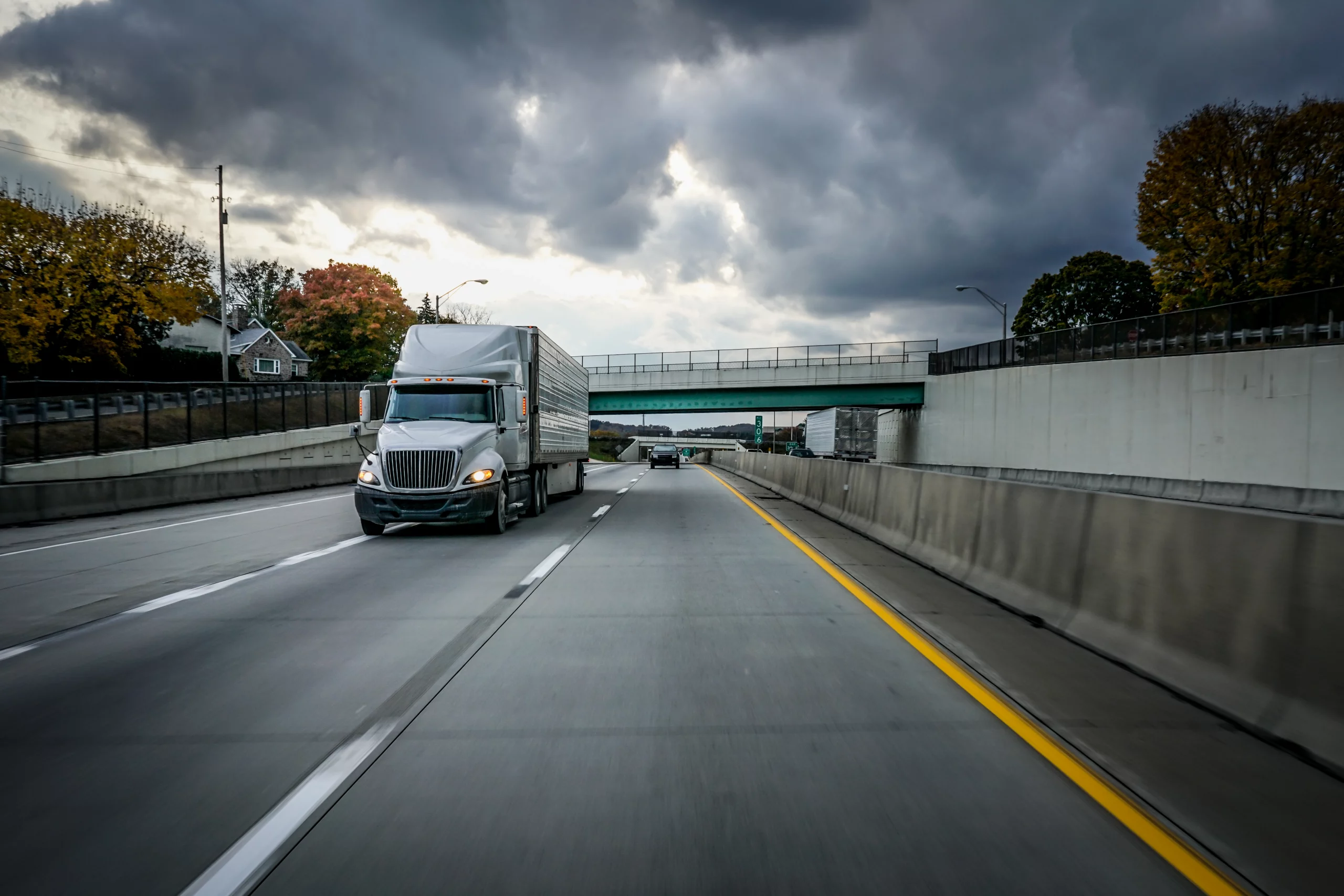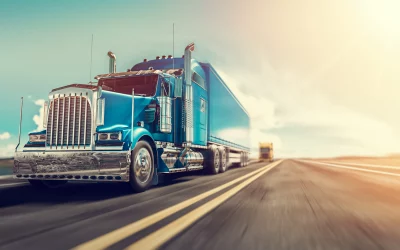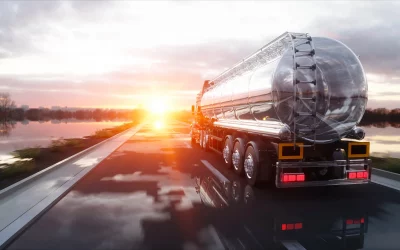Colorado Springs Defective Tire Law Firm
A tire blowout occurs when the air pressure in a tire rapidly drops to the point that it “blows,” and the driver loses control. Although contemporary tires are more trustworthy than ever, and blowouts aren’t as common as they once were, they still happen and may rapidly become disastrous.
They often result in catastrophic truck accidents, particularly when the vehicle is traveling fast. Tire-related collisions were responsible for 738 motor vehicle traffic deaths in 2017.
You’ve seen the remnants of a tire blowout if you’ve ever driven on the highway or Interstate and observed scattered tires. We’ll go over some of the most frequent causes of tire blowouts, the sorts of incidents that might occur, and what truck drivers should do if a tire blows out in this article.
Free Consultation
In Person | Phone | Zoom
Truck Tire Explosions: What Causes Them?
Several causes might cause a tire to blow out. In certain circumstances, the driver is entirely to blame, and it is due to a mistake on their part. Other times, the issue may be sole with the tire. The following are some of the most common causes of blowouts.
Negligence by the driver
Frequently, the blowout occurs because the driver neglected to inflate their truck’s tires properly or failed to replace an overworn tire. A blowout may happen in any of these conditions due to tread separation, which causes the tire to lose air pressure and burst quickly.
Tires with flaws
It’s also possible that the issue is with the tire itself. Bead failures, sidewall zipper failures, tread separation, and tire-shredding are all possible outcomes of significant defects. When a truck is driven in poor conditions, such as on bumpy roads, over potholes, or broken glass, the chances of this happening increase; commercial trucks with defective tires may be recalled due to tire defects. Tire manufacturers must adhere to tire recognizes because they are responsible for producing a safe and reliable product.
Another important factor is heat. Long periods spent on the road in hot weather strain tires, making them more susceptible to blowouts. As you might expect, summer is the season when tire blowouts are most common. Some have even dubbed the time from mid-May to early October “tire blowout season.”
Overloading of Cargo
Cargo loading problems often cause tire blowouts. That’s why, while operating on the Interstate System, each state has a gross limit weight in pounds or kilograms that a truck may carry. Truckers are not permitted to transport any more freight over the permissible capacity of their vehicle. However, if they overload it, the chances of a tire blowout skyrocket.
The Incorrect Tires
A tire blowout may also occur due to a motorist utilizing unsuitable or incorrectly sized tires. Again, the vehicle driver is responsible for this, and they must check that all tires are correctly fitted.
Bad Braking Practices and Bad Braking Brakes
There’s a link between worn brakes, inappropriate braking, and tire blowouts as well. When it comes to how brakes might cause blowouts, one aspect of the puzzle is brake failure. For example, slamming on the brakes too hard causes the tread to rapidly wear out and maybe burst. Driving down steep gradients when frequent braking is necessary may, of course, cause problems. As a result, drivers should change down to the lowest gear possible while driving down mountains.
Bad Weather and Potholes
These are two variables that a motorist has no control over. Unfortunately, less-than-ideal circumstances are unavoidable, particularly for long-haul truckers. They should, however, be aware of the harmful effect that potholes and poor weather may have on their tires and inspect their tires frequently under these conditions.
Tire Blowouts Cause Various Accidents
A truck tire explosion may result in four different sorts of mishaps.
Rollovers – When a truck flips or turns over on its side.
Falling Cargo – When cargo or debris falls out of a truck, it hits other vehicles on the road.
Rear-End Collisions — A rear-end accident happens when a truck collides with another vehicle from behind.
Head-On Collisions — When a truck’s front end collides with the front end of another vehicle.
Although the seriousness of truck accidents, especially those caused by blowouts, may be daunting, people who have been harmed can seek assistance.
After a truck tire blowout accident, you may be entitled to compensation for your pain and suffering.
After being wounded in a truck tire blowout accident, you may be entitled to claim pain and suffering compensation. This claim may also enable you to collect additional lost income and medical expenditures that were not covered by the motor insurance policy’s No-Fault medical coverage limit at the time of your claim.
You must be able to establish that you have experienced a “severe impairment of physical function” or persistent, substantial disfigurement to win a pain and to suffer compensation case following this sort of accident.
The statute of limitations for bringing pain and suffering compensation claims and claims for excessive medical bills, lost income, and another economic damage is three years from the date of the accident. 600.5805(2) MCL 600.5805(2) MCL 600.5805(2) MCL 600.5805
Who is to blame for a truck tire blowout accident?
A truck tire blowout accident might be caused by one of the following persons or entities:
The company and driver for negligent tire inspection, maintenance, and/or vehicle overload.
The driver for failing to detect during a pre-trip inspection.
The mechanic/service shop for negligent tire installation or repair.
The tire manufacturer for faulty design/construction and failure to warn.
Companies and owners are required by federal and state rules to keep their cars’ tires in good working order. Additional safety rules require tire pressure, tread depth, and mileage to be assessed and monitored during inspection and maintenance.
This is significant because the defense often questions any industry instruction on what the driver must do to “see” whether the hub or axle seals are leaking or how worn the tire tread is. In this respect, the JJ Keller pre-and post-trip inspection training movies are useful in demonstrating what a driver must do to recognize a hazardous situation before the tire explodes. “See sure hub oil/grease seals and axle seals are not leaking and, if the wheel has a sight glass, the oil level is appropriate,” the CDL Manual says.
Lawyers and their experts should also be familiar with 49 CFR 383 and how to apply the CDL Manual to these sorts of collisions.
Who pays for the damage caused by tire debris on my car?
If your automobile is damaged by tire debris, the damage may be covered by your collision policy or a small tort claim against the corporation that owns the vehicle. If you don’t have collision coverage, the small tort may help you pay your deductible or pay for repairs immediately.
The small tort only covers non-insured car damage, and it caps a person’s payout at $3,000 for accidents occurring after July 1, 2020. The previous cap was $1,000. Furthermore, a person filing a small tort claim for vehicle damage caused by a truck tire blowout accident must be able to demonstrate that he or she was covered by automobile insurance at the time of the event.
When a Tire Blowout Occurs, What Should a Truck Driver Do?
A tire blowout may be frightening, particularly for a truck driver who has never dealt with one before. The journey ranges from quiet and relaxing one minute to complete fear the next. As a result, it’s critical to perform these actions immediately after a truck tire explosion.
Maintain your composure. First and foremost, the driver must maintain as much calm as possible. Getting upset will make the situation worse and make everyone around the vehicle more unsafe. While it isn’t always easy, a motorist must do their hardest to maintain their cool.
Keep your composure. Next, attempt to keep the car under control. Rather than attempting to divert off the road and onto the shoulder right away, keep moving it in the direction it’s going. To retain control, the vehicle must continue to move (at least for a short time). Put another way, don’t make any unexpected pauses immediately soon.
SEMI-TRUCK ACCIDENT ATTORNEYS WITH EXPERIENCE SERVING CLIENTS IN COLORADO SPRINGS, COLORADO, AND ACROSS THE COUNTRY
Semi-trucks are a familiar sight across the Colorado Springs area, as it is one of the country’s major trucking hubs. Despite numerous rules governing the trucking sector, the corporations responsible for transporting freight have one key concern: the bottom line.
It is all too simple for trucking businesses and their employees to cut corners to safeguard their bottom line. Innocent people are hurt or killed as a result of this.
Our attorneys at Warrior Truck Accident Lawyers have a lot of experience with the complicated world of commercial truck accidents. Our law company can assist you in pursuing the compensation you deserve if you were critically wounded or a loved one is killed in a collision with an 18-wheeler.
For a free consultation, call Warrior Truck Accident Lawyers at 719-300-1100 today. Our truck accident attorneys represent clients in Colorado Springs, throughout Colorado, and across the country.
DO I NEED A LAWYER IN A TRUCK ACCIDENT CASE?
The answer is absolute, yes! While you are not required to have a trucking accident law firm representing you, you will undoubtedly have the odds are stacked against you if you do not have experienced counsel.
Truck accident claims are quite different from vehicle accident cases. Even though both types of claims involve incidents involving one or more automobiles, truck accident litigation is complex and detailed.
With trucking accidents being much more complicated, there are several reasons for this. Contacting an experienced commercial trucking lawyer is critical.
Your case may involve multiple defendants, such as the trucker, his or her company, the manufacturer of a rig part, and maybe others.
If there are several defendants, that means there will be multiple insurance companies involved, all of which will want to pass the blame and pay you as little as possible.
Truck drivers are subject to federal regulations and state and municipal laws; an accident investigation is likely to include many authorities, each of which is governed by its own set of rules, legislation, and processes.
Injuries in truck accidents are substantially more severe than those in “typical” vehicle accidents.
As a result, damages claimed in truck accident claims are typically significantly bigger.
Trucking accident claims are complex and controversial because all these elements working together. It is in your best interest to engage a law firm who understands both the complexities of trucking lawsuits and the stakes to you personally if you have been injured in a semi-truck







